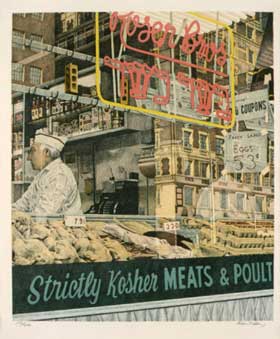From sundown Friday to sundown Saturday, Orthodox Jews are forbidden to work, write, and drive which means no cooking or fire lighting or moving electricity through a circuit.
To work around Sabbath restrictions, observant Jews taped down the button on the refrigerator door frame to keep the light from turning on, unscrewed the bulb or turned on an oven in advance to be able to warm food without altering temperature settings. And when well-intentioned appliance makers installed safety features that automatically shut off ovens after 12 hours, they also had to create an optional override, a kind of “Sabbath mode.” But as appliances got more high tech (fridge usins sensors instead of light switches), providing a Sabbath mode became more tricky.

To get a kosher seal of approval, manufacturers are turning brand-new appliance into those sold just after WWII: lights stay off and displays are blank; tones are silenced, fans stilled, compressors slowed. In a kosher fridge, there’s no light, no automatic icemaker, no cold-water dispenser, no warning alarm for spoiled food, no temperature readout.
Sabbath law prohibits Jews from performing actions that cause a direct reaction. But indirect reactions are kosher. This concept is called the gramma. If you hit a light switch, but it doesn’t come on immediately – that’s a time delay, a time gramma. There’s also a gramma of mechanical indirectness, like when a mouse turns a wheel that swings a hammer that turns a key that launches a rocket.
So companies build the time gramma into their products, the delay is about 15 seconds and a random wait 10 seconds.
With 900,000 Orthodox Jewish households in the US and millions overseas, offering the Sabbath mode makes good business sense. It’s also part of a trend that aknowledges cultural and religious values to tap emerging markets overseas and become more competitive in niche markets at home. General Electrics offers a five-burner stovetop for Hispanics, who use the extra burner for tortillas. And Intel has put ethnographers into Asian kitchens to look at technology use.
Via Wired.
